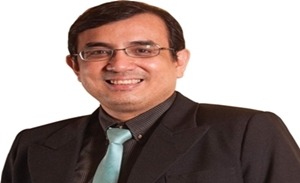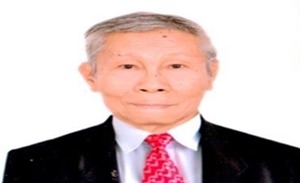ESPRESSO MORNINGS
By Joe Zaldarriaga

Joe also shares his opinion and outlook on relevant national and consumer issues as a columnist in several prominent publications and is now venturing into new media via hosting a new vlog called Cup of Joe. Previously, Joe was a reporter and desk editor of a Broadcasting Company and the former auditor of the Defense Press Corps of the Philippines. A true green Lasalian, he finished with a degree in Asian Studies specializing in the Japan Studies program at De La Salle University, Manila, where he also spent his entire education.
With the Philippines ranking third in the world for prison overcrowding, it is a heavily concerning reality that persons deprived of liberty in the country face deplorable living conditions that compromise their overall health and well-being.
Some 165,000 people are incarcerated across the country as of end-2023 —the 11th most in the world according to the Department of the Interior and Local Government. While some would argue that incarcerated individuals deserve less than the rest of society, I share the view that it is the policy of the State to value human dignity and guarantee full respect of human rights —even for those in prison.
Being deprived of freedom is already a heavy punishment, however, this deprivation should not extend to the denial of basic services with respect to human rights.
For years, incarcerated individuals have faced significant challenges in accessing basic services such as sufficient and nutritious food, personal care supplies, and even the most basic of healthcare services. These challenges not only hurt their living conditions but also contribute to the widening inequality gap in healthcare access in the country.
It is worth noting however that in recent years, there has been progress in improving the living conditions of persons deprived of liberty but there is still much work to be done.
Recently, the Department of Justice (DOJ) has partnered with business leader Manuel V. Pangilinan-led Metro Pacific Investments Corporation’s mWell to provide teleconsultation services to over 3,000 persons deprived of liberty at the Correctional Institute of Women.
mWell, through a joint initiative with Huawei Philippines, has enabled those incarcerated at the facility to e-consult with doctors using a tablet that’s pre-loaded with the app and get e-prescriptions and lab referrals. This telemedicine service complements the laboratory services set to be implemented by the DOJ at the correctional facility.
The setup is an innovative and practical solution to the healthcare challenges faced by persons deprived of liberty.
The collaboration between the DOJ and mWell underscores the power and impact of public-private partnerships in addressing many social issues—in this case, the often-overlooked medical needs of those within the criminal justice system.
As Justice Secretary Jesus Crispin Remulla said in a statement: “It is the right of every human being to have access to a reliable, free and speedy healthcare, it is the most basic aspect of humanity which should be accorded not only to those who are free but to those who are not, as well.”
By leveraging the strengths of both the public and private sectors, gaps in healthcare access for those incarcerated can be better addressed. This also relieves the burden from public funds which can be allocated to other social services.
As seen in the partnership between the DOJ and mWell, the private sector brings a lot to the table in this regard such as medical expertise and new technologies. These do not only address the problem on access to basic healthcare needs of persons deprived of liberty but also enhance the overall environment of correctional facilities.
The private sector is also usually at the forefront of medical advancements –innovations that the public sector can largely benefit from to improve access and quality of healthcare services to persons deprived of liberty.
Looking ahead, public-private partnerships offer an efficient and effective way forward in addressing many of the pressing and often-overlooked challenges in improving the healthcare system within our criminal justice system.
By actively pursuing public-private partnerships, our government does not only respond to the basic needs of incarcerated individuals but also shows commitment to pursuing a better quality of life for all Filipinos –even for those behind bars.





